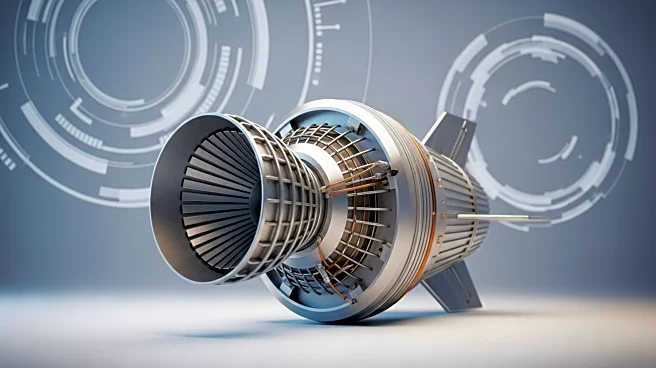What's Happening?
The European Space Agency (ESA) and Avio have entered into a contract to commence design work on a reusable upper stage for future Vega or other European rockets. The agreement, signed during the International Astronautical Congress, is valued at 40 million euros and spans two years. The project aims to develop key technologies in propulsion and reentry systems necessary for the upper stage, as well as advance the design of the stage itself. This initiative is intended to prepare for long-term applications of reusability while addressing short-term needs for the Vega rocket family. The new technologies could be integrated into the Vega E, which will feature a cryogenic upper stage replacing the third and fourth stages of the current Vega C. The upper stage is designed to return to Earth from orbit for reuse, potentially applicable to future versions of Vega and other European rockets.
Why It's Important?
The development of a reusable upper stage is significant for the European space industry as it aligns with global trends towards more sustainable and cost-effective space exploration. By investing in reusable technology, ESA and Avio are positioning themselves to compete with other international players who have already adopted similar strategies, such as SpaceX. This move could lead to reduced launch costs and increased frequency of missions, benefiting European space capabilities and commercial opportunities. The initiative also supports innovation within the European Launcher Challenge, encouraging startups to develop new launch vehicles with reusable components. This could foster technological advancements and economic growth within the European aerospace sector.
What's Next?
The contract outlines a two-year period for initial design work, but specific timelines for the development and deployment of the reusable upper stage have not been disclosed. As the project progresses, ESA and Avio may release further technical details and updates on the timeline. The success of this initiative could lead to broader applications of reusable technology in other European rockets, potentially influencing future space missions and collaborations. Stakeholders in the aerospace industry will likely monitor the project's advancements closely, as it could impact competitive dynamics and strategic partnerships within the sector.
Beyond the Headlines
The pursuit of reusable rocket technology by ESA and Avio reflects a broader shift towards sustainability in space exploration. This development could have ethical implications, as it promotes responsible use of resources and minimizes space debris. Additionally, the project may influence cultural perceptions of space travel, emphasizing innovation and environmental stewardship. Long-term, the success of reusable technology could lead to more accessible and frequent space missions, potentially expanding scientific research and exploration opportunities.








